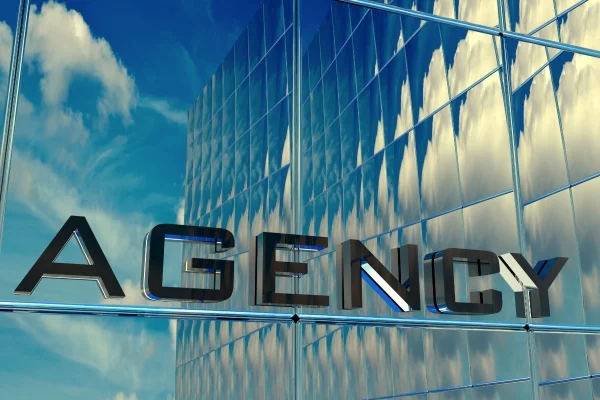Freelance vs agency: Pros & cons
You’re on the verge of launching your project and find yourself pondering whether to go with a freelancer or an agency? Rest assured, you’re far from the only one grappling with this question. And you’re absolutely right to ponder it, as your decision will significantly influence the success of your venture.
The catch is that there’s no one-size-fits-all answer. Yes, the perfect solution for your neighbor might not necessarily suit you.
It’s therefore essential to weigh the pros and cons of each option carefully to determine which fits your needs best.
But don’t fret, Debugbar is here to shed light on your dilemma (and boost your projects). So, are you ready to dive deep into the intricacies of this daunting choice? Let’s get started!
| Freelancer | Agency | |
| Pros | Access to specialized skills | Comprehensive resources for efficient execution |
| Lower overhead costs | Access to a team with diverse skills | |
| Availability outside traditional hours | Ability to handle complex projects | |
| High quality of work | Regular communication and support | |
| Personalized services | Internal team management | |
| Project is a top priority | Operational stability | |
| Cons | Requires client-side project management | Higher costs due to organizational structure |
| Limited adaptability to major changes | Team selection decided by the agency | |
| Vulnerable to individual delays | Adheres to traditional business hours | |
| Possible lack of formal contracts | Less personalization in team selection | |
| Extra fees for non-standard hours | Limited to the agency’s legitimacy |
Freelance vs agency: Drawing the line
Before diving into the crux of the matter, it’s pivotal to clarify the differences between a freelancer and an agency.
- A freelancer is, in essence, a one-man band. This independent expert often specializes in a specific niche, turning them into an “ace of spades” in their domain. They form part of the ever-growing gig economy that isn’t bound by the traditional 9-to-5 scheme.
- Expert in a specific field or niche.
- Work independently managing multiple clients.
- Flexible work hours outside the usual business framework.
- On the other end of the spectrum, we find agencies. These entities are composed of full-time employees or contractors who offer a diverse array of services. It’s essentially a team that you gain access to once you sign up for their service.
- A team comprised of diverse talents and specialties.
- A hierarchical system guided by the agency’s owner or board.
- Operate within traditional business hours.
Understanding these fundamental differences is crucial before delving into the pros and cons of each option.

Freelancers vs agencies: Unmasking the pros and cons
Choosing to hire a freelancer or an agency isn’t about pinpointing which is better. Instead, it’s about identifying which is better for your specific needs and goals.
It’s like choosing between pizza and pasta – both can be delicious or disappointing, depending on your preference, context, dietary restrictions, and so forth.
So let’s delve into the nitty-gritty of each option.
Flexibility: Who’s the king of adaptability?
Being adaptable is key to maintaining relevance in today’s rapid-paced world. So, who fares better in the flexibility department: freelancers or agencies?
- Freelancers are known for their flexibility. Their independence allows them to adapt swiftly to new technologies, trends, and strategies, ensuring you will always stay ahead of the curve. And not just that – they also have flexible work hours, making them available when you need them most.
- On the other hand, agencies, operating within traditional business hours, may not be as adaptable. They have a set protocol to follow, which may sometimes lack the speed of a freelancer. But remember, an agency does bring to the table a range of diverse skills that can be incredibly beneficial for large projects.
Resources: A one-man army or an entire troop?
When we talk about resources, we talk about the workforce, skill sets, tools, and technologies at disposal.
Here’s how freelancers and agencies measure up:
- Freelancers, being independent experts, focus on honing a specific set of skills. They may also use top-notch tools to provide quality service. However, their resource pool is limited to their competencies and tools.
- Agencies, on the contrary, have a larger resource pool. They have an inclusive team offering diverse services, which means they bring together a mix of skills and expertise under one roof. Also, as organizations, they often have access to advanced technology and tools that may not be affordable for individual freelancers.

Capacity: Volume of work and scalability
One factor that can tip the scale in favor of your decision is the capacity – how much work can they handle and how well do they scale?
- Freelancers excel at running small, personalized operations. If your project is small to medium in size, a freelancer can do wonders. However, if a sudden increase in work volume or complexity arises, they may struggle to scale their operations.
- Agencies, with their larger teams and resources, are built to manage large volumes of work. They can easily scale up or down as per the project requirements. So for large-scale projects or when a growth spurt is in sight, agencies are your go-to option.
Reliability: Who can go the distance?
When choosing a partner to work with, dependability can’t be compromised. So, how do freelancers and agencies measure up in this regard?
- Freelancers, being individuals, may sometimes find it challenging to maintain consistent communication. Also, their availability could be affected by personal circumstances, leading to potential project delays.
- Agencies, being larger entities with multiple team members, ensure that your project stays on track even if someone is unavailable. They generally have processes in place to handle such situations, making them a more reliable option.
After going through all these aspects, it’s visible that both freelancers and agencies have their strengths and weaknesses. To decide effectively, you must reflect on the needs and requirements of your project, keeping these pros and cons in mind.
Expertise: specialization vs. diversity
In the end, the quality of work depends heavily on expertise. So, where does each option stand in this context?
- Freelancers shine when it comes to specialization. They are usually experts in a specific area, serving a niche market. If you seek specific expertise, a freelancer could be just the right partner for you.
- Agencies, on the other hand, offer diverse expertise. With their team consisting of different talents, they can handle a broad array of tasks proficiently. If your project requires multi-faceted expertise, an agency would be the way to go.
Availability: Round-the-clock support or office hours?
The availability of your service provider can be a critical factor in some scenarios. Here’s what to expect from freelancers and agencies:
- Freelancers, due to their flexible working hours, can be available outside traditional office hours. However, remember that their availability is limited to their personal working schedule.
- Agencies usually adhere to regular business hours. However, they have more hands on deck to handle emergencies or last-minute requests during these hours.

Cost: Balancing quality & affordability
In the end, it all boils down to the budget, right? So, let’s see how your pocket feels about freelancers and agencies:
- Freelancers usually have lower overhead costs. They charge for their expertise, not for team management or office spaces. This often makes them a more cost-effective option.
- Agencies, on the other hand, have multiple salaries and overhead costs to cover. As a result, their services are generally priced higher. However, remember that with an agency, you’re buying into a team and diverse skillsets, which can be worth the extra cost in some scenarios.
Now that we’ve weighed each criterion for both freelancers and agencies, let’s get a tad more granular.
What should you consider before taking a decision?
Whether you choose to hire a freelancer or an agency there are a few key elements to consider:
- Experience within your specific niche: Has the freelancer or agency worked with businesses similar to yours before? Do they understand your industry and target audience?
- Demonstrable past performance and results: Can they showcase previous work that demonstrates their competence? Do they have quantifiable results to back up their claims?
- Positive client testimonials and recommendations: What do their past clients say about them? Are there positive reviews or testimonials you can refer to?
To sum up: When should you opt for a freelancer or an agency?
As promised earlier, we won’t leave you high and dry but will provide a brief conclusion.
| Criteria | Freelancers | Agencies |
| Flexibility | + | – |
| Resources | – | + |
| Capacity | – | + |
| Cost | + | – |
| Reliability | – | + |
| Expertise | + | + |
| Availability | + | – |
To sum up:
- Hiring a freelancer would be ideal when:
- You’re working on smaller projects or have limited budgets.
- You prefer direct project involvement and communication.
- You seek an expert in a specific field.
- However, hiring an agency would be your best bet if:
- You’re looking at larger projects that need diverse expertise.
- You have to meet tight timelines.
- You prefer a hands-off approach, with the team managing your project independently.
There’s no absolute right or wrong choice here. It all boils down to your unique requirements, budget, and goals. Armed with this detailed insight, you’re now well-equipped to make an informed decision, one that propels your project towards success.